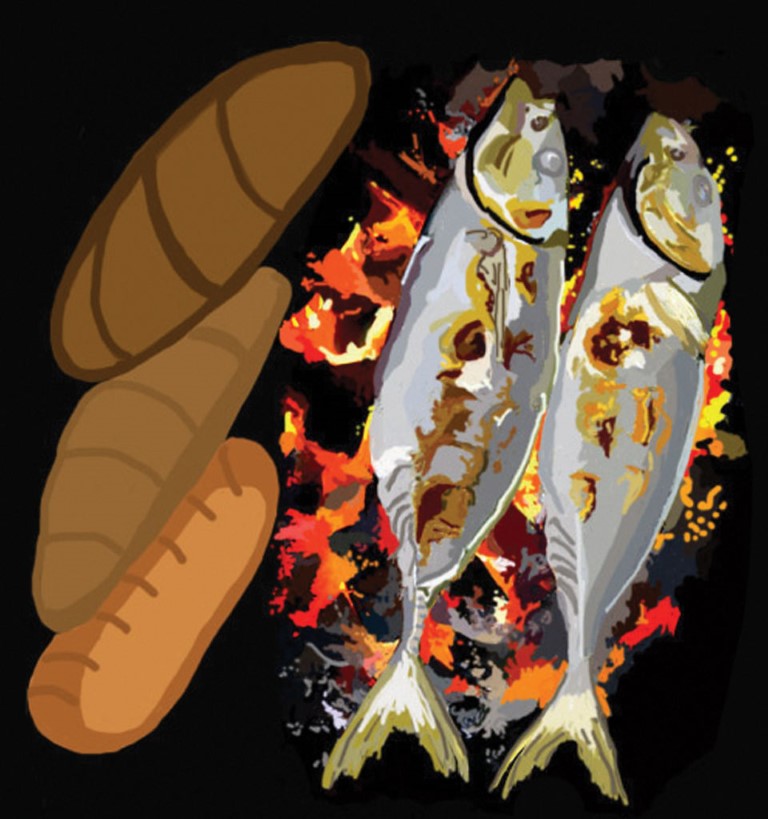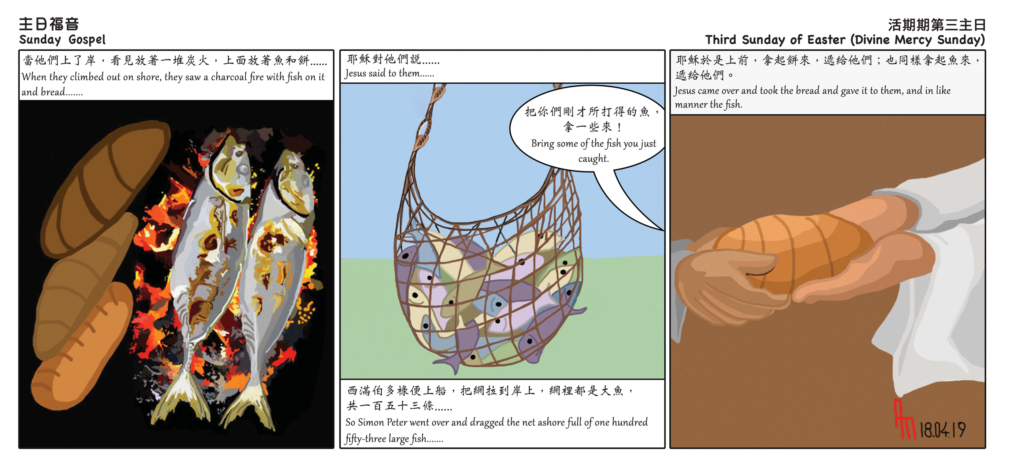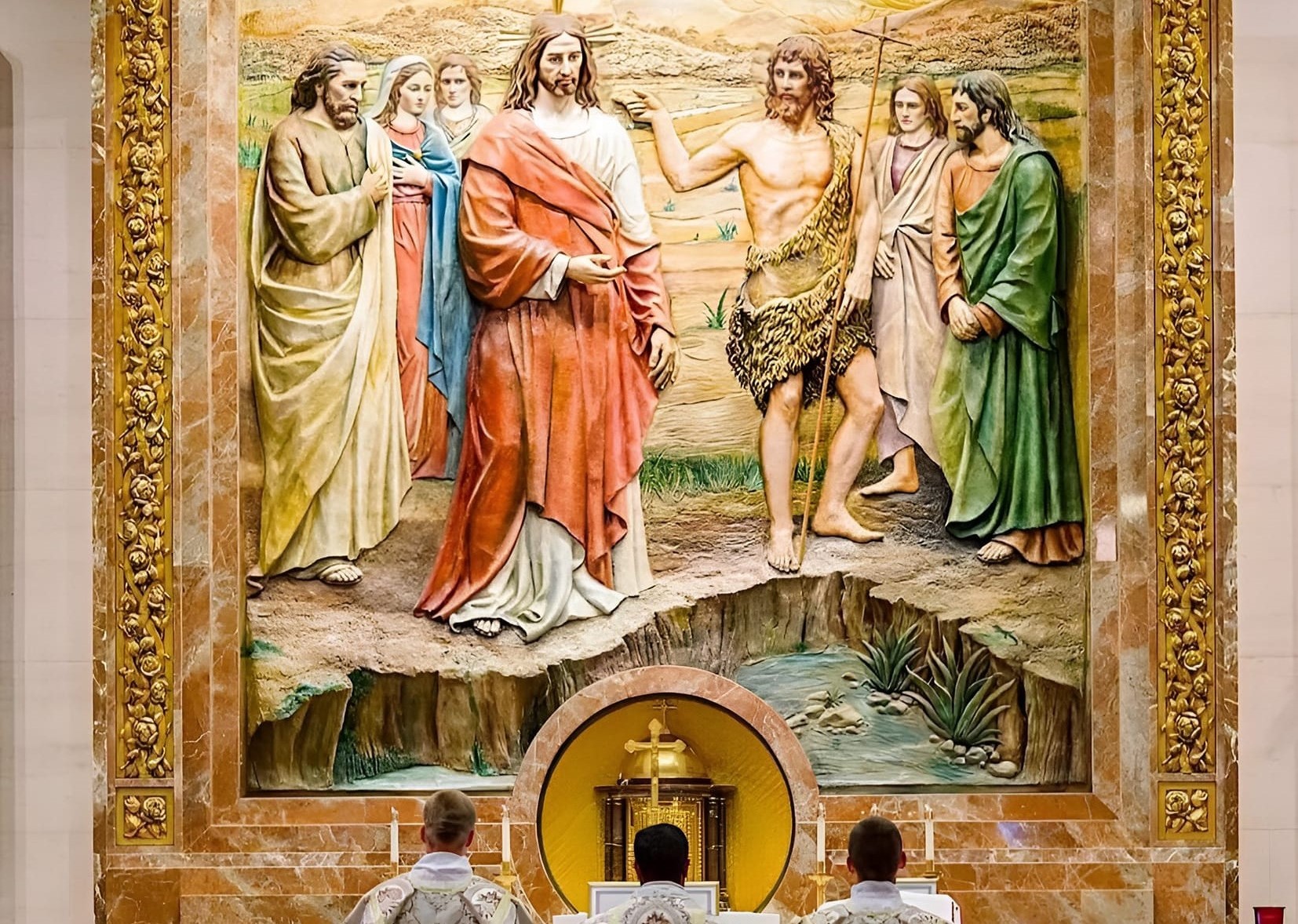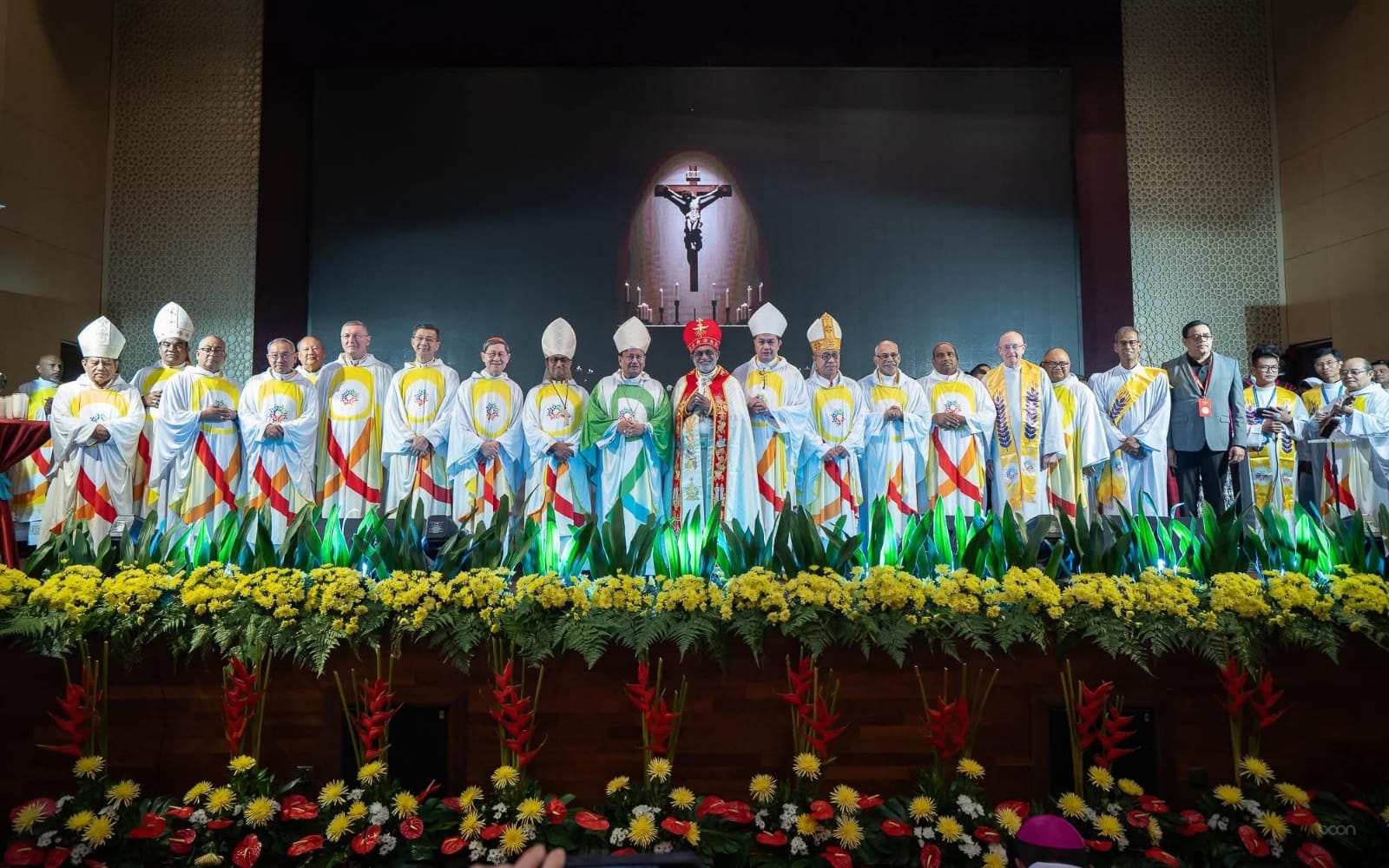Acts 5:27-32; 40b-41, Rev 5:11-14, Jn 21:1-19
– May Tam
www.FLL.cc
One detail we might notice in today’s Gospel is the mysteriousness of Jesus’ appearance. Pope Benedict XVI in his book, Jesus of Nazareth (Holy Week), has dealt with this point quite extensively. Careful reading of the text reveals the “special mysterious nature of the risen Lord’s new existence” (p 266). Together with the other “appearance” accounts, this one vividly displayed many loose ends. Apart from the practical questions of how Jesus came and where He got the fish and bread, the mysteriousness comes from His not being recognized by the disciples. “None of the disciples dared ask Him, ‘Who are you?’ They knew it was the Lord” (Jn 21:12). It must have been ineffable for the disciples to comprehend the totally new experience of Jesus’ presence and therefore they did not dare to ask. He was of “real physicality” but “not bound by physical laws.” He was both the “same embodied man” and “a new man embodied in a new way” (p 266, 268). According to Pope Benedict XVI, these loose ends were the proofs of the veracity of the resurrected Lord (p 266-267). If the Resurrection story was invented, it would have been patched up nicely to make it more believable. It was with such originality that the text bore witness to this real encounter (cf p 275).
I would say that this mysteriousness is important not so much for its theological implication but more for our faith. The risen Lord was definitely not a ghost (spirit) for He had a body (cf Lk 24:39-43; Jn 20:27) and yet was freed from bodily constraints (cf Lk 24:31, 36; Jn 20:19, 26). His coming back from the dead was not something eerie or a paranormal phenomenon but “a new dimension of human existence” (p 274) that cannot be understood by the intellect or empirically explained. “Since we ourselves have no experience of such a renewed and transformed……….kind of life” (p 274), it is only with and through faith that we can come to accept the reality of this unthinkable event and not only accept, but believe that this new kind of life, brought about by Jesus, “the firstfruits of those who have fallen asleep” (1 Cor 15:20-23), has been made possible for us.
The invitation to the shore after the night in the sea
– Fernando Armellini SCJ
Claretian Publications, Macau
John, the evangelist narrates another manifestation of the Risen Lord to his disciples and this episode is full of symbolisms.
There are seven occupants in the boat. This number represents perfection, completeness. Peter and the other six represent all the disciples who make up the entire Christian community. The symbolism could go even further to seize the identity of those disciples, an image of the various types of Christians who, despite their limitations and their faults, have still the right to be part of the Church: those who have difficulty to believe (Thomas); those who are a bit of a “fanatic” (the two sons of Zebedee, who wanted to call down fire of heaven against the opponents; Lk 9:54); those who denied the Master (Peter); those tied to the traditions of the past, but honest and open to the signs of the times (Nathaniel); and also the anonymous Christians who are not known by anyone (the two unnamed disciples).
The sea, we have often noted, was, among the Israelites, the symbol of all the forces hostile to humanity. If being under water means being at the mercy of evil, to fish, then, means to pull out of this condition of “non-life,” to free from evil forces that keep people in death situations. Think of all the slavery that keep us from living with joy, from smiling: the greed of money, grudges, unruly passions, drugs, pornography, anxiety, haste, remorse, fear….
Now it is clear what Jesus meant when he told his disciples: “Follow me, and I will make you fish for people” (Mk 1:17). In fact, here they are at work. Peter is back to do his job, material fishing, but in the theological language of the evangelist, it indicates the apostolic mission of the Church committed to the liberation of people.
The darkness that accompanies the night has also a negative meaning. “Those who walk at night stumble” (Jn 11:10), “the one who follows me will not walk in darkness” (Jn 8:12)—Jesus said. Without light, the “fishing” of the disciples cannot get any results. Not only light is lacking, but also Jesus, indeed—according to the symbolism of the Evangelist John—there is no light because there is no Jesus, “the light of the world” (Jn 8:12). Peter and others are committed to the utmost in the mission that has been entrusted to them, but do not get anything. They could have guessed the reason of their failure had they remembered the Master’s words: “Apart from me you can do nothing” (Jn 15:5).



 Follow
Follow


